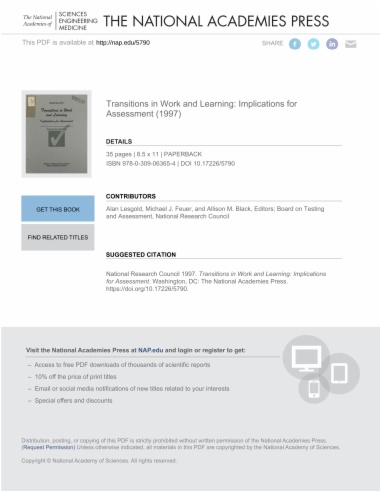

The dramatic shift in the American labor market away from manufacturing and the growing gap in earnings between high school and college graduates have contributed to a sense of alarm about the capacity of the nation's schools to supply adequately skilled graduates to the work force. The role that schools can or should play in preparing people to enter the world of work is hotly debated. In an effort to nurture the important and ongoing national dialogue on these issues, the Board on Testing and Assessment asked researchers and policymakers to engage in an interdisciplinary review and discussion of available data and implications for assessment policy.
Transitions in Work and Learning considers the role of assessment in facilitating improved labor market transitions and life-long learning of American workers. It addresses the apparent mismatch between skill requirements of high-performance workplaces and skills acquired by students in school, the validity of existing assessment technologies to determine skills and competencies of persons entering various occupations, and ethical and legal issues in the implementation of new testing and certification programs. The book also examines the role of assessment in determining needed skills; developing ongoing education and training; and providing information to employers, prospective workers, and schools.